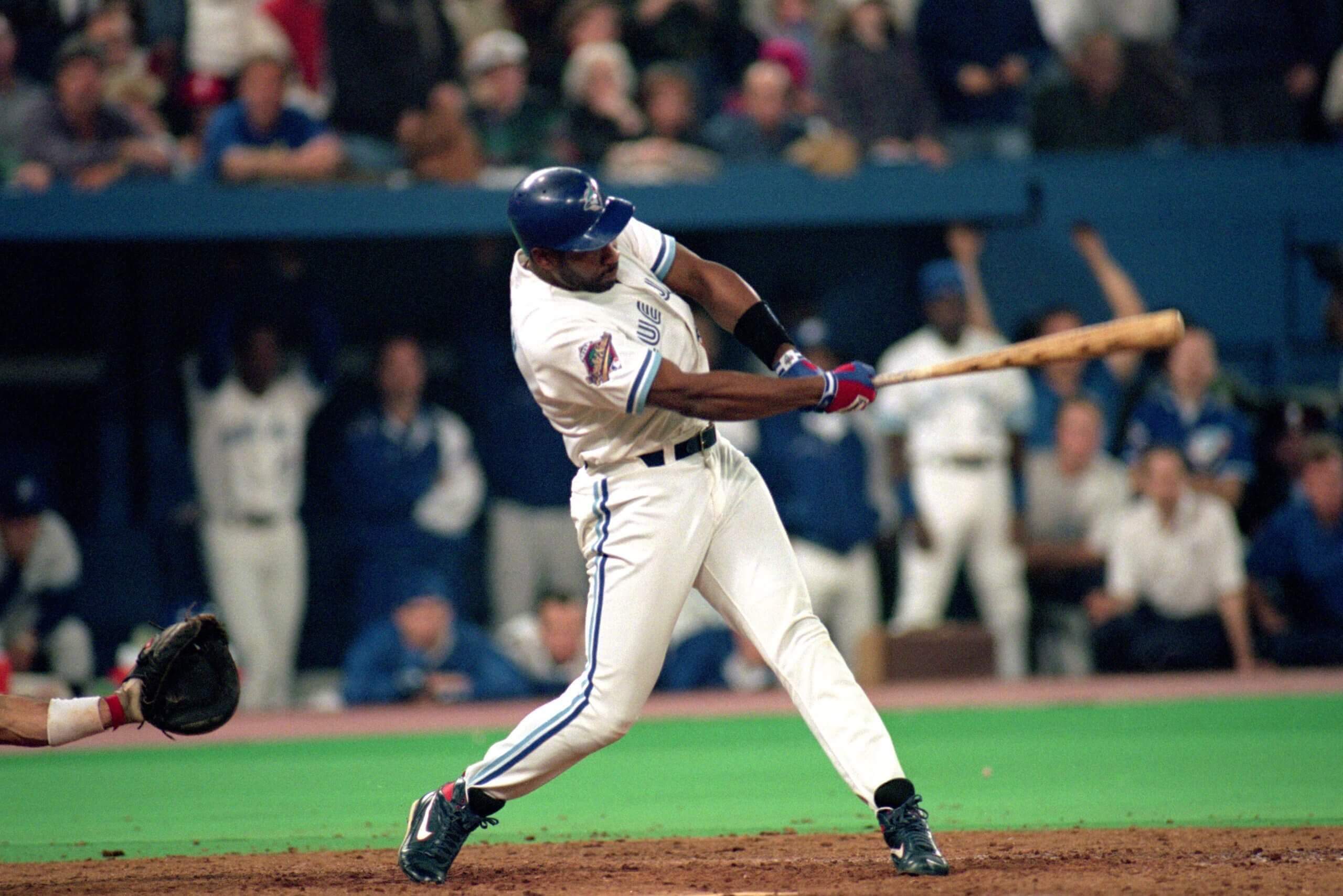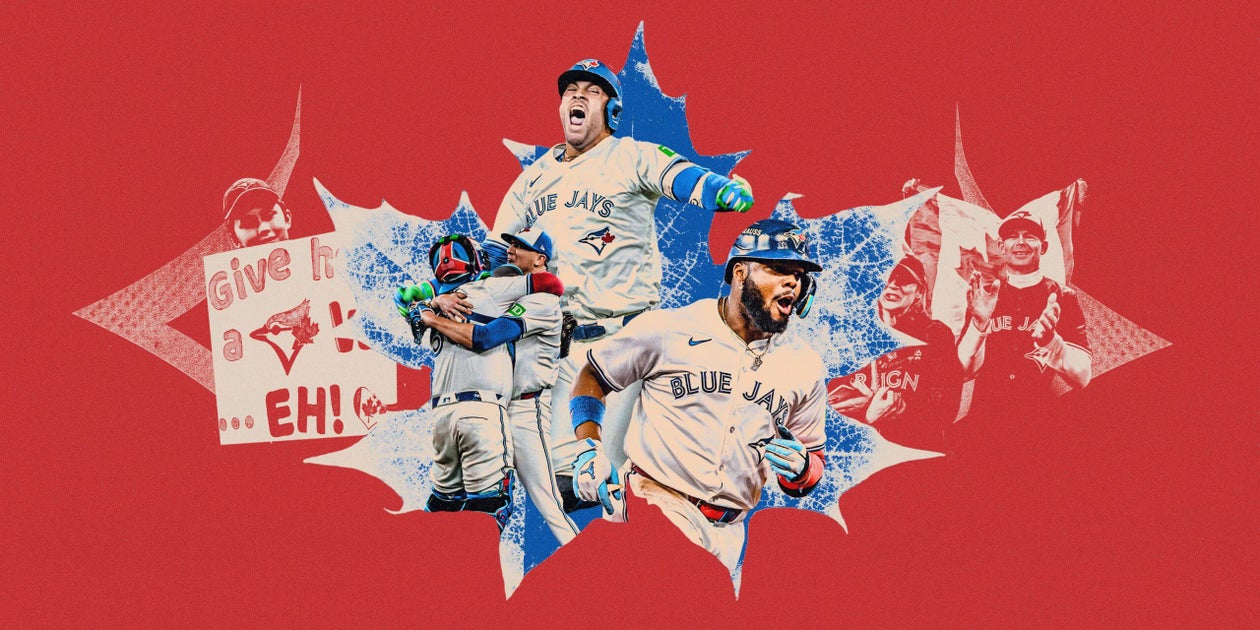Few people in the bar paid attention when George Springer hit one of the biggest home runs in Toronto Blue Jays history.
“Monday Night Football” played on massive screens around the establishment, the broadcast blasting over the speakers. Game 7 of the ALCS was relegated to a small, silent screen beside the big show — the yelp and involuntary clapping seeming all the more obnoxious in the heart of Texas. A couple of vocal Seattle Mariners fans, sitting a dozen empty seats down, turned and glared in their anguish.
I’d kept my allegiances quiet for most of the game, as I usually do as a sports writer on the road for work, but this was something instinctive and visceral — a feeling that couldn’t be contained by a professional air of indifference.
My lonely joy in the Lonestar State was connected to an eruption back home — 2,253 kilometers — in Toronto. It was the same jolt that ripped across the 10 provinces, three territories, and doubtless made Canadians known in bars across the globe. My phone shook from the noise when a friend sitting in the 500-level at Rogers Centre sent me his video of the Springer Dinger. Another video he sent of the final strike captured the expletive-ridden poetry of the moment in the thundering stands: “We’re f—ing going to the World Series! Holy s—!” a fan shouted as he leapt up and down in a four-man embrace.
Later, on the field, Jays manager John Schneider addressed the moment in an interview with Sportsnet’s Hazel Mae, broadcast across the Dome’s speakers.
“This is f—ing unbelievable for me,” Schneider said, to the boisterous delight of more than 40,000 people. “This is my 24th year with this organization, and I f—ing love it here. These fans, this country — you deserve all of this.”
Earlier in the postseason, the American manager commented on the unique pressure of managing the Blue Jays. “You always feel the weight of the world in decisions you make, but when you’re kind of feeling a country, it gets a little dicey at times,” he said in a news conference during the ALDS against the Yankees. “Like the sixth inning with the bases loaded and nobody out and Aaron Judge hitting, you feel like people in Nova Scotia want to come murder you.”
The idea that the Blue Jays are Canada’s team has been passionately conveyed by the players throughout the postseason. Honorary Canadians, all. They get the feeling, it seems — they know what this means beyond the clubhouse. But only one Jay was actually born on Canadian soil: Vladimir Guerrero Jr., whose father played for the Montreal Expos. Guerrero spent most of his young life and still resides in the Dominican Republic, but he holds dual citizenship.
Images of the son playing with his father and the Expos when he was a toddler have filled in what seems like a full-circle moment for the Jays’ $500 million star. He celebrated with tears in his eyes after the ALCS. “We do this for the city. We do this for you all,” he told Mae on Sportsnet as fans roared. “Four more. Four more.”
The Jays national identity is heavily promoted by Rogers, the telecommunications giant that owns the team and the Sportsnet network — while also providing wireless service to more than a third of the country. As marketing plans go, it’s an effective one. But Rogers didn’t invent the feeling.
Since the Expos left for Washington, D.C., leaving heartbroken fans in Montreal, the Jays have been Canada’s only MLB team. Like the NBA’s Raptors, the franchise is all Canadian fans have — and, because of that singularity, a whole lot of feelings are pulled to the gravity of a playoff run.
The Jays market is more than 40 million people strong. A good number of those people are die-hard baseball fans, but many more are just delighted by the coalescence of our diverse parts under the war-cry of a campy classic: “OH-KAY… BLUE JAYS … LET’S PLAY BALL.”
If you are a Jays fan of a certain vintage, the anthem of the team’s glory in the 1980s and early 1990s has been playing on repeat throughout the postseason.
A millennial fan, in particular, might have felt the nostalgic rush of watching the 1992 and 1993 World Series championships as a kid — and Springer’s three-run shot on Monday night brought you home.
There is a Ford Aerostar in the driveway. A fax machine screeching next to a giant IBM computer in the living room. You don’t even have dial-up internet yet. But you have a TV that weighs more than your father, and has a square screen with faded hues, which sits on a cabinet that holds a five-disc CD player and your Super Nintendo. You watch with your family on a beige corduroy Chesterfield sofa.
And everyone’s there, the living and the dead. Your grandfather who rolls his own cigarettes and drinks Labatt Blue. Your grandmother who calls the players her “boys.” Your father, who plays catch with you in the backyard and coaches your Pizza Pizza house league team. And you’re jumping and cheering alongside them. And you’re on the outside lawn, running bases with your friends and hitting home runs with a tennis racket over a neighbor’s fence.
Home is Joe Carter, ball in glove, leaping at first base in Atlanta in ’92 — and bounding around the bases at the SkyDome after a swing and belt in ’93. Left field. Way back. Blue Jays win. “Touch ‘em all, Joe …”

The Blue Jays’ victory over Seattle had fans remembering Joe Carter’s game-winning home run in 1993. (Rick Stewart / Getty Images)
That was the jolt I felt in that Texas bar — a sudden connection of memory and a feeling of united elation.
There are, once again, people climbing lampposts in streets overflowing with blue and white. Time is folding for a generation of Jays fans, many who are now relaying the feeling to their own kids, hoping that they might carry a similar joy into their future.
But there is more to this celebration than nostalgia. There is a sense of collective pride that moments like this conjure. The meeting between Canada and the United States during last winter’s 4 Nations Cup hockey tournament carried a wider subtext, amid U.S. President Donald Trump’s persistent talk of making Canada the 51st state, calling the prime minister “governor,” and launching a trade war through tariffs that has deeply wounded the Canadian economy. While some of the vitriol has waned — no one is booing anthems anymore — the tension between old friends persists.
For Canada, any sporting event against its brawny neighbor has always carried some angst. During Game 2 of the 1992 World Series between the Braves and Jays, a Canadian flag hung upside down during the national anthem in Atlanta. It was a mistake. President George H.W. Bush issued two official apologies on behalf of the United States. But the perceived slight still resonated deeply with Canadians.
And now Canada’s team is up against an American giant in the World Series. The Los Angeles Dodgers — the defending world champs, a behemoth with a $350 million payroll, and probably the most remarkable player to ever step on a diamond — against the Blue Jays and their sling shots. That Shohei Ohtani flirted with Toronto before signing with Los Angeles adds some extra history to the clash. That the Jays have the fifth-highest payroll in baseball is a minor detail in the narrative. This is an underdog tale, the way Canadians like it.
As an international broadcast, Sportsnet’s Dan Shulman and Buck Martinez will call the next chapter in that northern baseball story. Martinez, the beloved Jays catcher from the powder-blue 1980s — who once turned a double play with a broken leg — is in the booth after missing a large portion of the season while being treated for lung cancer. You can be sure his voice will carry full volume from homes and bars across the country. Because regardless of whether America is listening, Canada is ready.
Let’s play ball.

